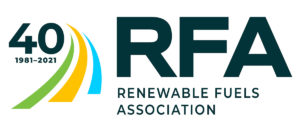 The Renewable Fuels Association (RFA) provided an ethanol industry update on Friday, presenting a history of the Renewable Fuel Standard (RFS) and its success, how small refinery waivers have undermined production, progress on recovery after COVID, a new consumer attitudes survey, and more.
The Renewable Fuels Association (RFA) provided an ethanol industry update on Friday, presenting a history of the Renewable Fuel Standard (RFS) and its success, how small refinery waivers have undermined production, progress on recovery after COVID, a new consumer attitudes survey, and more.
RFA President and CEO Geoff Cooper discussed the RFS in an historical context and how the biofuels industry has responded to meet the goals of the legislation, while fighting EPA in court to follow the intent of the law. “Even with these implementation challenges and all of the waivers that we have seen, the RFS has really done exactly what it was supposed to do,” said Cooper. “It has reduced imports of crude oil and petroleum products, it has added value to farm commodities and boosted farm income, it has reduced gasoline prices…and critically it has reduced greenhouse gas emissions.”
Cooper stressed the important role ethanol is already playing in carbon reduction, and its advantages over fully electric powered vehicles.
RFA Industry Update - Geoff Cooper 18:13
RFA Chief Economist Scott Richman reviewed the growth of the ethanol industry after implementation of the RFS, and the economic impact of COVID in 2020, as well as the demand destruction caused by small refinery waivers.
RFA Industry Update - Scott Richman 7:56
Troy Bredenkamp, RFA Senior Vice President, Government and Public Affairs, presented some very recent polling data regarding public perceptions of renewable fuels.
RFA Industry Update - Troy Bredenkamp 13:25
Full briefing audio:
RFA Industry Update 1:03:51

